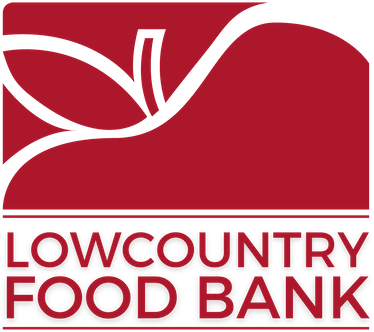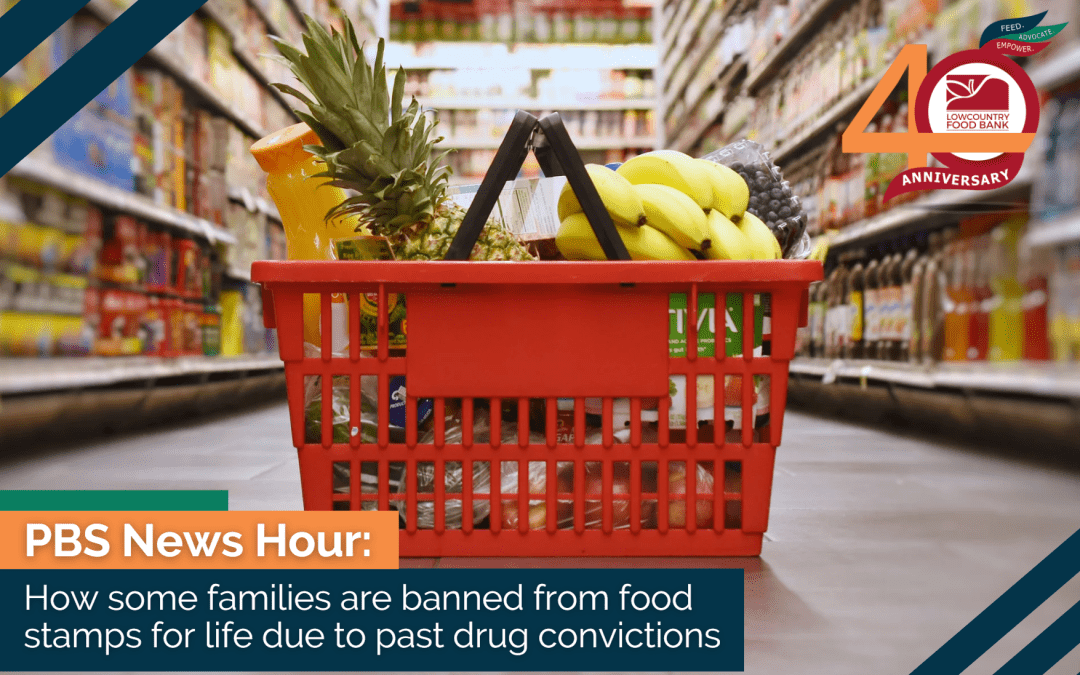When Aubrie Butler applied for nutrition benefits a few years ago, she was honest about her husband’s 2006 felony drug conviction, thinking, “All they can say is ‘no.’”
South Carolina started to give her $800 a month for food, and she was thrilled. She was already earning $16 an hour managing a Salvation Army store near Greenville, South Carolina, to support her family of four. But that boost allowed her “to go through a grocery store and not have to add up every single item” she placed in her shopping cart to ensure she did not exceed her budget. For two years, her family, including two sons, now ages 11 and 16, received Supplemental Nutrition Assistance Program (SNAP) benefits, and were recertified along the way.
Then, in June 2022, Butler received a letter from the South Carolina Department of Social Services, saying her family had been granted SNAP benefits in error because her husband’s felony drug conviction forbade his household from participating in the program. Two weeks later, another letter arrived, saying she owed the state nearly $10,000.
“That was so wrong,” Butler said. “‘We’re going to help you out because your family is in need of help,’ but then they found out he was a felon. How do you expect someone who qualifies for food stamps to pay that much back?”
Butler’s family is one of many who have felt the repercussions of laws designed long ago to punish people leaving jails and prisons – even after they have completed their sentence – if their records include certain offenses. A bipartisan bill now before Congress could potentially end that harm if lawmakers can agree to fund it. Part of the Farm Bill, the 2023 RESTORE Act would repeal the nearly three-decade-old federal law that has allowed states to deny nutrition assistance to people with felony drug convictions for their lifetimes.
“We know now these types of policies don’t have any public safety value.”
In 1996, Congress passed the Personal Responsibility and Work Opportunity Reconciliation Act as part of what became known as welfare reform during the Clinton administration. The law diminished access and affordability of child care, supplemental income for families raising children with disabilities, Temporary Assistance for Needy Families (or TANF), as well as nutrition assistance, formerly known as the Food Stamp Program. Crucially, lawmakers also stipulated that a person holding a felony drug conviction would be banned for life from receiving SNAP benefits. The ostensible goal was to help only the people who were most in need, with public funds well spent on their behalf, as defined by Congress. But advocates say it only succeeds in undermining a person’s ability to start over.
“We punish people in every possible way, thinking this will deter people from commiting drug offenses,” said Grant Smith, deputy director of national affairs for the Drug Policy Alliance. “We know now these types of policies don’t have any public safety value. They worsen public safety outcomes.”
The bill allowed states to opt out of enforcing that lifetime ban on nutrition assistance, and most states did so, choosing to not punish people by withholding food. Another 22 states have imposed watered-down versions of this law, Smith said. South Carolina is the only state that still fully enforces it.
At the South Carolina Appleseed Legal Justice Center in Columbia, attorney Sue Berkowitz assists families like Butler’s whose lives have been upended by this law. People of color and people living in or near poverty are disproportionately affected, worsening long-running disparities, she said. The law also ignores the fact that people can change.
“It was a bad law when it first came out, and it’s proven to be a mean, vindictive way of addressing people who might have had drug problems or encounters with drugs in the past, unlike any other time someone is prosecuted,” said Berkowitz, who also directs the center.
Collateral consequences in the criminal justice system, the concept of penalizing people after their sentences are up, have shaped an estimated 45,000 state and local laws including South Carolina’s rigid interpretation of the 1996 federal law. Advocates say these laws and regulations create obstacles for people trying to rebuild their lives post-incarceration and fuel recidivism.
“Denying SNAP just makes it harder for people leaving the criminal justice system to get back on their feet.”
After leaving jail and prison, you’ll “be lucky if they make minimum wage” in South Carolina, and “you can’t live on minimum wage,” said Brenda Shaw at Lowcountry Food Bank in Charleston.
When people cannot get enough food, they go to Shaw, whose food bank serves the state’s 10 coastal counties, including rural residents who sometimes struggle in food deserts. Shaw is concerned about people’s ability to build a new life when they run up against barriers like a lifetime ban on SNAP benefits for a prior felony drug conviction.
It’s even more difficult for people with families, she said. If society wants people who leave incarceration to “lead productive lives, sometimes you need a little help to meet those basic needs,” Shaw said. “Denying SNAP just makes it harder for people leaving the criminal justice system to get back on their feet.”
“If they can’t help themselves, they’re probably going to turn to crime,” she said.
Even where the law is not fully enforced, it “has a chilling effect” and “discourages people from applying,” Smith said.
If Congress passes the RESTORE Act, it would nullify any state law or policy that places conditions on a person’s eligibility for nutrition assistance “based on an individual having a conviction for an offense related to a controlled substance.” The new law would also allow people leaving jails and prisons to apply for SNAP benefits up to 30 days before their release so they can have access to food as soon as they leave incarceration. More than 150 organizations, including the American Public Health Association and the American Society of Addiction Medicine, have endorsed the bill.
“We know that when people receive SNAP assistance, they are better able to successfully reenter their communities after incarceration and not return to the criminal justice system,” said Sen. Cory Booker, D-N.J., in a released statement.
Being a young mother, Butler said she learned long ago that when she is faced with challenges, she has “to just make it work.” They are working to appeal the debt the state says they owe for the benefits they received. Despite their household’s financial hardships, her sons are thriving, earning straight A’s with schoolwork help from their dad, who has broken no law since he left prison in 2008.
But laws like South Carolina’s erode people’s resolve to do the right thing, Butler said: “If they’re needing help to buy food [and are then denied due to a past conviction], why wouldn’t they go back to their old ways?”
This article was originally published on PBS.org on June 9, 2023 by Laura Santhanam.
About the Lowcountry Food Bank: Feed. Advocate. Empower.
The Lowcountry Food Bank serves the 10 coastal counties of South Carolina and distributed more than 39 million pounds of food in 2023. The Lowcountry Food Bank helps fight hunger by distributing food to nearly 230 partner agencies including on-site meal programs, homeless shelters and emergency food pantries. The Lowcountry Food Bank advocates on behalf of those who experience hunger and helps empower people to make healthy and nutritious food choices. For more information, visit the Lowcountry Food Bank website.


Recent Comments